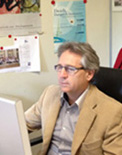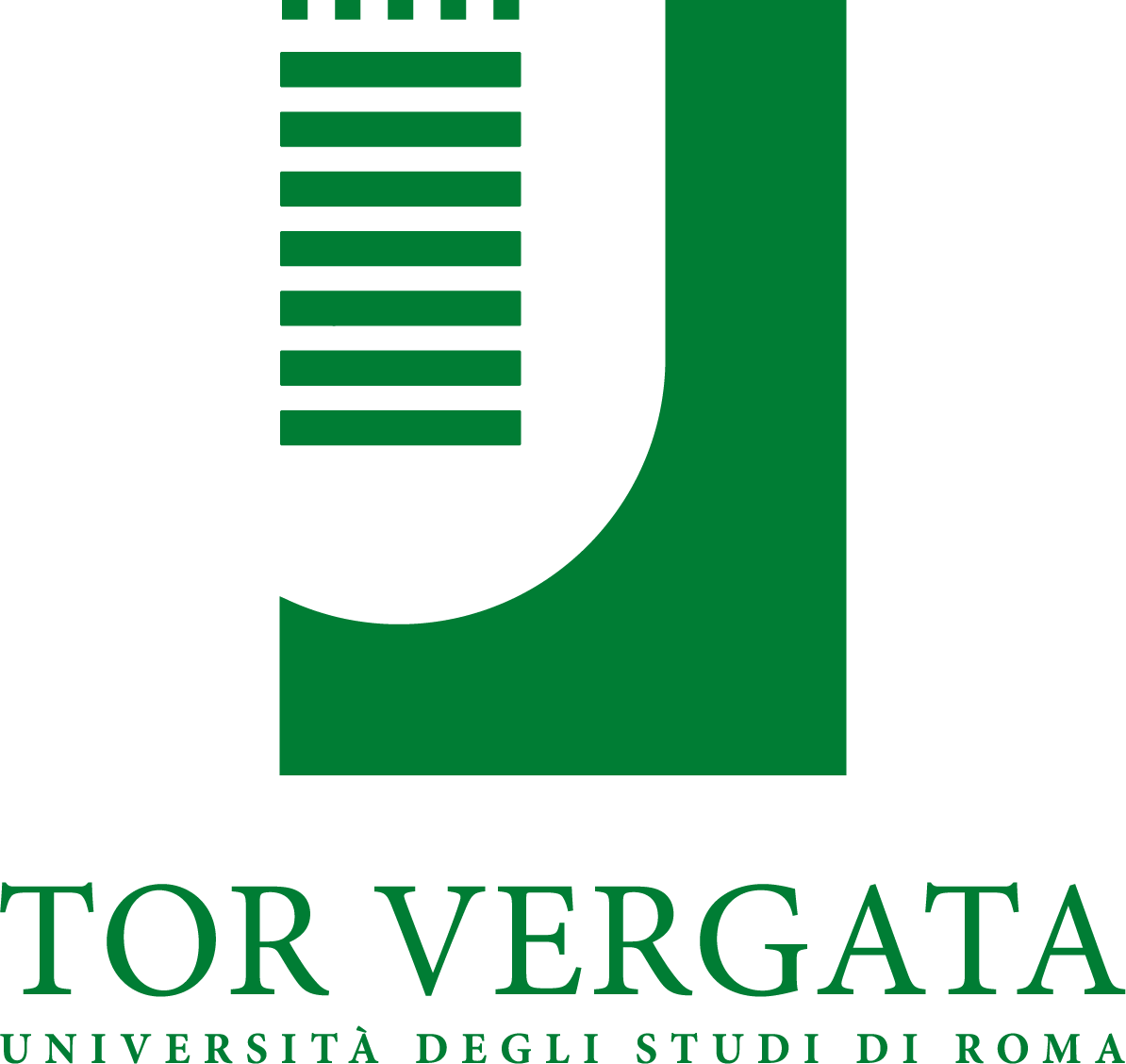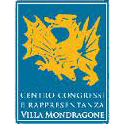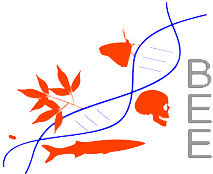Curriculum Vitae
Education
1976 degree cum laude. University of Rome “La Sapienza”, Italy Cell Biology
Appointments/Affiliations
2013-present Board of Directors University of Rome “Tor Vergata”, Rome, Italy
2013-present President National Abilitation Committee Italy
2005-present Board of Directors European Cell Death Organization Europe
2000-present Full Professor University of Rome “Tor Vergata”, Rome, Italy
1998-present Basic Research Director National Institute for Infectious Diseases Rome, Italy
2004-2012 President Biotechnology Programme University of Rome “Tor Vergata”, Rome, Italy
1994-2007 Board of Directors International Cell Death Society New York, USA
2004-2007 Program Coordinator Marie-Curie European Community Brussels, Belgium
2004-2007 Board of Directors SpaXen Italia Srl Rome-New York, USA
2002-2005 President European Cell Death Organization Europe
1994-2002 Vice President European Cell Death Organization Europe
1998-2000 Associate Professor Tuscia University Viterbo, Italy
1994-1997 Consultant LXR Biotechnology Inc Richmond, CA, Italy
1984-1986 Postdoctoral Fellow NIDR, NIH Bethesda, MD, USA
1984-1998 Assistant Professor University of Rome “Tor Vergata”, Rome, Italy
1978- Postdoctoral Fellow Dept of Pathology, Karolinska Stockholm, Sweden
1977-1984 Postdoctoral Fellow University of Rome “La Sapienza”, Rome, Italy
Honors/Awards
2010 Gordon Conference Elected Chair USA
2007 JSPS award Japanese Society for the Promotion of Science Japan
2007 “Descartes Award” European Commission Europe
2007 Keynote speaker 7th International Meeting of the Slovenian Biochemical Society Slovenia
2006 Member of Expert Group Ministery of Health Italy
2005 Keynote speaker International Immunology and Reumathology Meeting Taiwan
1999-2005 Italian Representant EU Cost Action 844 Belgium
1995 ABCD Price Italian Society for Cell Biology Italy
Patents
1998 US Patents n. 5750360 Method for quantitatively measuring apoptosis The invention encompasses methods of detecting and/or quantifying ε(γ-glutamyl)lysine isodipeptide by catalytically releasing lysine, then measuring free lysine.
Memberships
2012 Accademia Medica Romana Member
2010 Cell Death Disease (Nature Publishing Group) Deputy Editor
2008 BioMedicine Research International Editor
2007 Methods in Enzymology Guest Editor
1993-present Cell Death Differentiation (Nature Publishing Group) Founder and Editor
2000-2005 European Science Foudation “Transglutaminase and Protein Crosslinking Programme” Board Member
1994-present European Cell Death Organization Founding Member
Journal reviewer for: Autophagy, Plos One, Carcinogenesis, Brain Research, Cancer Research, Cancer Cell, Cell Death and Differentiation, Experimental Cell Reseach, European Journal of Cell Biology, FASEB journal, FEBS Letter, Journal of Biological Chemistry, Journal of Cell Biology, Journal of Cell Science, Journal of Immunology, Journal of Neurochemistry, Journal of Physiology, International Immunology, International Journal of Cancer, Oncogene, Molecular and Cellular Biology, Neuroscience, Nature.
Grant reviewer for: Aids Fonds (The Netherlands), Ministry of Education and Science (Russia), National Science Foundation (NSF, USA), Medical Research Council” (MCR; U.K.), International Human Frontier Science Program (HFS; France), Wellcome Trust (U.K.), Science Foundation Ireland (Irlanda), Agence Nationel Recherche (France), Swiss Science Foundation (Svizzera), FWO (Belgio), Associazione Italiana Ricerca sul Cancro (AIRC), Alzheimer’s Research Trust (UK), Italian Ministery of Health, Italian Ministery of University and Research.
Organization of international meetings:
-”Apoptosis in AIDS and Cancer” december 1993, Paris, France.
-Advanced Courses on “Cell Differentiation and Death” May 1994, Erice, Italy.
-”Transglutaminases and Protein Cross-linkings Reactions” August 1994, Debrecen, Hungary.
-”New Cancer Strategies: Apoptotic Based-Therapies” september 1994, San Diego (CA), U.S.A.
-3nd Workshop “Biochemistry of Neuroectodermal Tumours” June1995 Roma, Italy.
-1st International Conference on “Apoptosis in Skeletal and Cardiac Muscles” June, Abano Terme, Italia.
-4th Euroconference on “Euroconference on Apoptosis” September 1996, Capri, Italy.
-1st Course on “Molecular Mechamisms of Apoptosis” May 1997, Tucuman, Argentina.
-”Transglutaminases and Protein Cross-linkings Reactions” September 2000, Lyon, France.
- 8-15th Euroconferences on “Euroconference on Apoptosis” held in: Davos 2000 (Switzerland); Vienna 2001 (Austria);
Paris 2002 (France); Gent 2003(Belgium), Chania 2004, (Greece); Budapest 2005 (Hungary); Portoroz (2007), Slovenia.
Member of the Scientific Committee.
-1st Workshop on Programmed Cell Death in Plants, Habana 2004.
-1st Curso on “Cellular and Molecular Basis of Cell Death” Habana June 2005.
-1st Workshop on “Proteomics in Translational Research” November 2005, Rome.
-14th Euroconference on “Apoptosis or Programmed Cell Death” September 2006, Chia Laguna (Ca), Italy.
-”Transglutaminases and Protein Cross-linkings Reactions” September 2007, Marrachesh, Morocco.
-1st Workshop “The Role of Autophagy in Infectious diseases and Cancer” June 2009 Roma, Italy.
-2nd Gordon Research Conference on “Transglutaminases in Human Diseases”, July 2012, Charlotte, USA.
-20th Euroconferences on “Euroconference on Apoptosis” September 2012, Rome Italy.
Editorial comments
on Prof. Piacentini’s pubblications Editorials have been published in: Journal of National Cancer Institute September 2004; Cell Death and Differentiation Vol. 11 (2004): S33-S36); Nature Cell Biology, July 2007; Nature Business Exchange, September 2011.
Research topics
Studies are aimed to characterisation of the molecular mechanisms at the basis of cell death and autophagy.
-Role of type 2 Transglutaminase in cell death and autophagy in physiology and pathogenesis of diseases as cancer, viral infections, neurodegenerative disorders.
-Involvement of type 2 Transglutaminase in regulation of mitochondria funcionality as well as in their clearence by mitophagy.
Research Grants:
International Agencies:
Prof Piacentini has received 9 grants from the Europen Commission for a total of about 3 Millions Euro:
National and International agencies:
Since 1988 Prof. Piacentini has obtained numerous research grants from the following national agencies for a total of 3.5 millions Euro:
Consiglio Nazionale delle Ricerche
Ministero dell’ Università
Ministero della Salute
Ministero degli Esteri
Associazione Italiana per la Ricerca sul Cancro (AIRC)
Telethon
Banca San Paolo di Torino
CHDI Los Angeles, USA.
Pubblications
1992
1. Expression of tissue transglutaminase in Balb-C 3T3 fibroblasts: effects on cellular morphology and adhesion.
Gentile V, Thomazy V, Piacentini M, Fesus L, Davies PJ.
J Cell Biol. 119(2):463-74.
1996
2. Induction of “tissue” transglutaminase in HIV pathogenesis: evidence for high rate of apoptosis of CD4+ T lymphocytes and accessory cells in lymphoid tissues.
Amendola A, Gougeon ML, Poccia F, Bondurand A, Fesus L, Piacentini M.
Proc Natl Acad Sci U S A. 93(20):11057-62.
1999
3. Nerve growth factor is an autocrine factor essential for the survival of macrophages infected with HIV.
Garaci E, Caroleo MC, Aloe L, Aquaro S, Piacentini M, Costa N, Amendola A, Micera A, Caliò R, Perno CF, Levi-Montalcini R.
Proc Natl Acad Sci U S A. 96(24):14013-8.
4. Tissue transglutaminase: apoptosis versus autoimmunity.
Piacentini M, Colizzi V.
Immunol Today. 20(3):130-4.
2001
5. Human immunodeficiency virus 1 envelope glycoprotein complex-induced apoptosis involves mammalian target of rapamycin/FKBP12-rapamycin-associated protein-mediated p53 phosphorylation.
Castedo M, Ferri KF, Blanco J, Roumier T, Larochette N, Barretina J, Amendola A, Nardacci R, Métivier D, Este JA, Piacentini M,nKroemer G.
J Exp Med. 194(8):1097-110.
2002
6. Transglutaminase 2: an enigmatic enzyme with diverse functions.
Fesus L, Piacentini M.
Trends Biochem Sci. 27(10):534-9.
7. Sequential involvement of Cdk1, mTOR and p53 in apoptosis induced by the HIV-1 envelope.
Castedo M, Roumier T, Blanco J, Ferri KF, Barretina J, Tintignac LA, Andreau K, Perfettini JL, Amendola A, Nardacci R, Leduc P,
Ingber DE, Druillennec S, Roques B, Leibovitch SA, Vilella-Bach M, Chen J, Este JA, Modjtahedi N, Piacentini M (*), Kroemer G.
EMBO J. 21(15):4070-80.
2003
8. Transglutaminase 2-/- mice reveal a phagocytosis-associated crosstalk between macrophages and apoptotic cells.
Szondy Z, Sarang Z, Molnar P, Nemeth T, Piacentini M, Mastroberardino PG, Falasca L, Aeschlimann D, Kovacs J, Kiss I, Szegezdi E, Lakos G, Rajnavolgyi E, Birckbichler PJ, Melino G, Fesus L.
Proc Natl Acad Sci U S A.100(13):7812-7.
2004
9. AIF deficiency compromises oxidative phosphorylation.
Vahsen N, Candé C, Brière JJ, Bénit P, Joza N, Larochette N, Mastroberardino PG, Pequignot MO, Casares N, Lazar V, Feraud O,
Debili N, Wissing S, Engelhardt S, Madeo F, Piacentini M, Penninger JM, Schägger H, Rustin P, Kroemer G.
EMBO J. 23(23):4679-89.
10. Gangliosides link the acidic sphingomyelinase-mediated induction of ceramide to 12-lipoxygenase-dependent apoptosis of neuroblastoma in response to fenretinide.
Lovat PE, Di Sano F, Corazzari M, Fazi B, Donnorso RP, Pearson AD, Hall AG, Redfern CP, Piacentini M.
J Natl Cancer Inst. 96(17):1288-99.
11. Murine hepatocyte cell lines promote expansion and differentiation of NK cells from stem cell precursors.
Bordoni V, Alonzi T, Agrati C, Poccia F, Borsellino G, Mancino G, Fimia GM, Piacentini M, Fantoni A, Tripodi M.
Hepatology. 39(6):1508-16.
12. NF-kappaB and p53 are the dominant apoptosis-inducing transcription factors elicited by the HIV-1 envelope.
Perfettini JL, Roumier T, Castedo M, Larochette N, Boya P, Raynal B, Lazar V, Ciccosanti F, Nardacci R, Penninger J, Piacentini M (*), Kroemer G.
J Exp Med.199(5):629-40.
2005
13. Essential role of p53 phosphorylation by p38 MAPK in apoptosis induction by the HIV-1 envelope.
Perfettini JL, Castedo M, Nardacci R, Ciccosanti F, Boya P, Roumier T, Larochette N,
Piacentini M (*), Kroemer G.
J Exp Med. 201(2):279-89.
2007
14. Ambra1 regulates autophagy and development of the nervous system.
Fimia GM, Stoykova A, Romagnoli A, Giunta L, Di Bartolomeo S, Nardacci R, Corazzari M, Fuoco C, Ucar A, Schwartz P, Gruss P, Piacentini M, Chowdhury K, Cecconi F.
Nature. 447(7148):1121-5.
15. Calreticulin exposure dictates the immunogenicity of cancer cell death.
Obeid M, Tesniere A, Ghiringhelli F, Fimia GM, Apetoh L, Perfettini JL, Castedo M, Mignot G, Panaretakis T, Casares N, Métivier D, Larochette N, van Endert P, Ciccosanti F, Piacentini M, Zitvogel L, Kroemer G.
Nat Med.13(1):54-61.
2009
16. Cannabinoid action induces autophagy-mediated cell death through stimulation of ER stress in human glioma cells.
Salazar M, Carracedo A, Salanueva IJ, Hernández-Tiedra S, Lorente M, Egia A, Vázquez P, Blázquez C, Torres S, García S, Nowak J, Fimia GM, Piacentini M, Cecconi F, Pandolfi PP, González-Feria L, Iovanna JL, Guzmán M, Boya P, Velasco G.
J Clin Invest. 119(5):1359-72.
2010
17. The dynamic interaction of AMBRA1 with the dynein motor complex regulates mammalian autophagy.
Di Bartolomeo S, Corazzari M, Nazio F, Oliverio S, Lisi G, Antonioli M, Pagliarini V, Matteoni S, Fuoco C, Giunta L, D’Amelio M, Nardacci R, Romagnoli A, Piacentini M, Cecconi F, Fimia GM.
J Cell Biol. 2010 Oct 4;191(1):155-68.
2011
18. Extracellular ATP acts on P2Y2 purinergic receptors to facilitate HIV-1 infection.
Séror C, Melki MT, Subra F, Raza SQ, Bras M, Saïdi H, Nardacci R, Voisin L, Paoletti A, Law F, Martins I, Amendola A, Abdul-Sater AA, Ciccosanti F, Delelis O, Niedergang F, Thierry S, Said-Sadier N, Lamaze C, Métivier D, Estaquier J, Fimia GM, Falasca L, Casetti R, Modjtahedi N, Kanellopoulos J, Mouscadet JF, Ojcius DM, Piacentini M, Gougeon ML, Kroemer G, Perfettini JL.
J Exp Med. 208(9):1823-34.
19. Mitochondrial BCL-2 inhibits AMBRA1-induced autophagy.
Strappazzon F, Vietri-Rudan M, Campello S, Nazio F, Florenzano F, Fimia GM, Piacentini M, Levine B, Cecconi F.
EMBO J. 30(7):1195-208.
2012
20. Autophagy Protects Cells from HCV-Induced Defects in Lipid Metabolism.
Vescovo T, Romagnoli A, Perdomo AB, Corazzari M, Ciccosanti F, Alonzi T, Nardacci R,
Ippolito G, Tripodi M, Garcia-Monzon C, Lo Iacono O, Piacentini M (*), Fimia GM.
Gastroenterology. 142(3):644-653.e3.
21. An Immunosurveillance Mechanism Controls Cancer Cell Ploidy
Senovilla L, Vitale I, Martins I, Tailler M, Pailleret C, Michaud M, Galluzzi L, Adjemian S, Kepp O, Niso-Santano M, Shen S, Mariño G, Criollo A, Boilève A, Job B, Ladoire S, Ghiringhelli F, Sistigu A, Yamazaki T, Rello-Varona S, Locher C, Poirier-Colame V,Talbot M, Valent A, Berardinelli F, Antoccia A, Ciccosanti F, Fimia GM, Piacentini M, Fueyo A, Messina NL, Li M, Chan CJ, Sigl V, Pourcher G, Ruckenstuhl C, Carmona-Gutierrez D, Lazar V, Penninger JM, Madeo F, López-Otín C, Smyth MJ, Zitvogel L, Castedo M, and Kroemer G.
Science 1678-1684.
2013
22. mTOR inhibits autophagy by controlling ULK1 ubiquitylation, self-association and function through AMBRA1 and TRAF6.
Nazio F, Strappazzon F, Antonioli M, Bielli P, Cianfanelli V, Bordi M, Gretzmeier C, Dengjel J, Piacentini M, Fimia GM, Cecconi F.
Nature Cell Biology.
Research group
Federica Di Sano (Ricercatore)-federica.di.sano@uniroma2.it
Lucia Piredda (Ricercatore)-lucia.piredda@uniroma2.it
Carlo Rodolfo (Ricercatore)-carlo.rodolfo@uniroma2.it
Marco Corazzari (RTD)-marco.corazzari@inmi.it
Maria Grazia Farrace (funzionario tecnico)-grazia.farrace@uniroma2.it
Serafina Oliverio (funzionario tecnico)-oliverio@bio.uniroma2.it
Manuela Deletto (assegnista di ricerca) manuela.deletto@gmail.com
Valentina Reali (assegnista di ricerca) valentina1983v@libero.it
Federica Rossin (post-doc) federicarossin@gmail.com
Paola Giglio (PhD student) paolagiglio.pg@gmail.com
Laura Diaz Hidalgo (PhD student Marie Curie) manuela.deletto@gmail.com
Sara Altuntas (PhD student Marie Curie) saraaltuntas@gmail.com
Serena Saladini (post.doc)- serena.saladini@live.it






Università di Tor Vergata